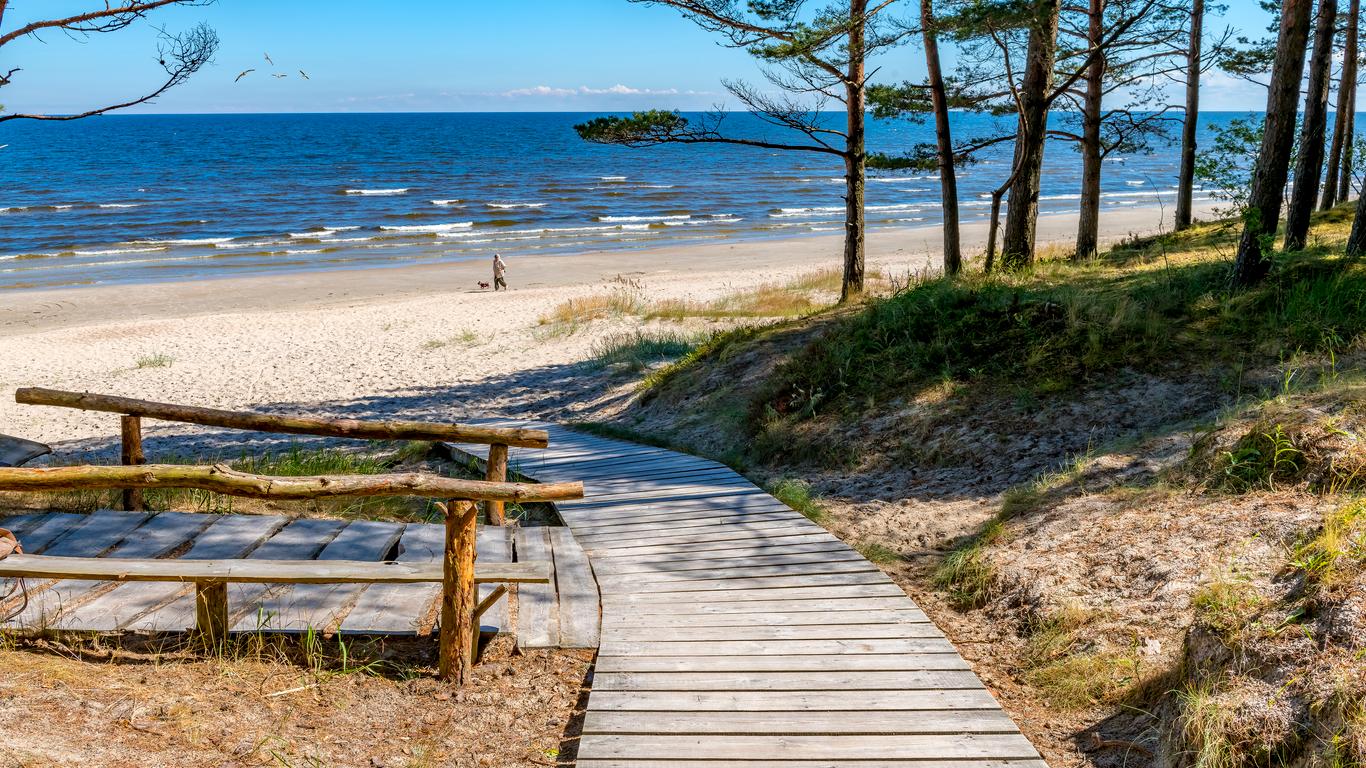Stretching 32 kilometres between the Gulf of Riga and the Lielupe River, Jūrmala is a string of beach resorts west of the Latvian capital, Riga. During Soviet years it was a favourite getaway destination for high-level Communist Party officials, with many of charismatic Art Nouveau wooden beach houses still visible today.
Jūrmala officially became a city in 1959 and today includes numerous small beach resorts and residential areas. Each of the beaches has its own distinct character, with some boasting volleyball courts and football fields, while others offer kite surfing, wind surfing and children’s playgrounds. The waterfront is lined with Jūrmala’s characteristic wooden houses, many of which date to the late 19th century and are now heritage-listed. While most were built by Baltic German and Latvian architects in a classicist and national romantic style, a few are also the work of Russian and Finnish architects. Also of note is the Dubulti Station with its sculptural concrete shell designed in a Modernist style, together with the Dzintari Concert Hall. It was built in the 1930s in a Neo-eclectic style, with a covered garden added in the 1960s to work in harmony with the natural setting. For a glimpse into life in Jūrmala’s 19th century fishing villages, visit the Ethnographic Open Air Museum where characteristic homesteads, smokehouses and saunas have been recreated, then take a walk through the picturesque Ragakāpa Nature Park which lies nearby, renowned for its 800 metre-long dune.
Jūrmala is well connected by suburban trains from Riga, with Majori the most central of its railway stations. From May through to September it can also be accessed by boat from Riga, although most opt to visit with a private vehicle, allowing them to explore each of the beach resorts along this elongated stretch of coast.
It was in the late 18th century that Jūrmala first emerged as a beach holiday destination, with Russian army officers relaxing here following the Napoleonic Wars. After the Riga-Tukums railway was opened in 1877, Jūrmala developed rapidly and gained its reputation as a revitalising health spa, with mineral springs, sea breezes and the scent of pine trees wafting through the air.





